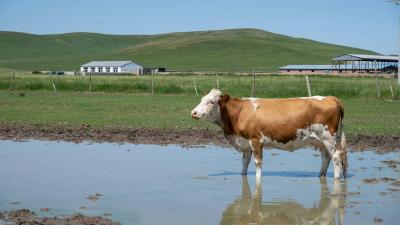Plant-Based Diets Cut Hyperthyroid

Vegan diets are linked to half the prevalence of hyperthyroidism as compared to diets that include meat and dairy products, according to a study published in Public Health Nutrition. Researchers assessed the dietary patterns and hyperthyroid treatment histories of 66,000 individuals in the United States and Canada as part of the Adventist Health Study-2 (AHS-2). They found that those who excluded all animal products from their diet had 52 percent lower odds of prevalent hyperthyroidism (as defined by treatment over the past year) compared with omnivores. Lacto-ovo and pesco-vegetarians were found to have lower odds of hyperthyroidism than omnivores, but to a lesser extent, and semi-vegetarian diets showed no protection against hyperthyroidism. These results were still significant after adjusting for body mass index (BMI) and salt use, both of which are associated with risk of hyperthyroidism. While hyperthyroidism has many causes, it is most often due to autoimmune dysfunction. The study hypothesized that the protective effect of vegan diets may be due to either the absence of meat, eggs, and dairy products, which contain high estrogen concentrations that may be linked to autoimmunity, or to the high concentration of immune-boosting antioxidants found in plant foods. Interestingly, the researchers previously found vegan diets to also be associated with a lower risk of hypothyroidism.
References
- Tonstad S, Nathan E, Oda K, Fraser GE. Prevalence of hyperthyroidism according to type of vegetarian diet. Public Health Nutr. 2015;18:1482-1487.
- Tonstad S, Nathan E, Oda K, Fraser G. Vegan diets and hypothyroidism. Nutrients. 2013;5:4642- 4652.








